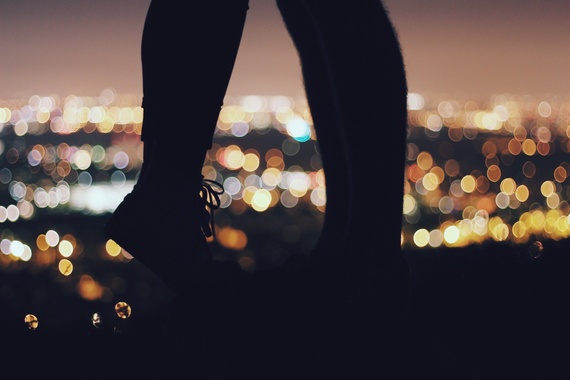
Warm-hearted, heavy-hearted, light-hearted, lion-hearted, broken-hearted...see where I'm going here? We have many words in the English language to describe a range of emotions by simply attaching the word 'heart' to it. But we know fully well today that emotion arises in the brain and not in cardiac muscle, as once thought by the ancients.
Despite the advancements in understanding our bodies and minds over the past couple millennia, we are still disentangling the intricacies of emotions as they are represented in the brain. Perhaps the most interesting emotional state is that which has spurred humans throughout history to sing for it, dance for it, kill for it, live for it, even die for it. Yes, that emotional state found in 170 different societies worldwide that has captivated artists, poets, writers and everyone in between: love.
Biologically speaking, love is the backbone of the social bonds that are critical for our survival and adaptation. These intimate bonds alter the brain's circuitry and tip the hormonal balance to shape our memories, emotions and ultimately our 'self.' In essence, every important relationship we have shapes our brain, which in turn shapes our very relationships. Lucky for us, there are many different types of love: maternal love, familial love, the kind we feel when we cuddle a pet, hug a tree, or even a special blanket. While love itself is characterized as an emotion like anger and sadness, there is also a strong biological desire - sexual desire - which drives all living species to populate our world. This passionate love is what this post is all about.
The brain on love
Psychologists began teasing out the complexities of love back in the 1960s (no surprise), but it wasn't until a decade or so ago that neuroscientists unraveled the specific networks in the brain devoted to passionate love. This heart-pumping, sweat-inducing type of love is defined as "a state of intense longing for union with another," and is far from a simple emotion. Neuroimaging techniques, such as fMRI, suggest that passionate love recruits brain areas associated with basic emotions, like reward or motivation, as well as brain regions involved in complex cognitive processing, such as social cognition, body image, self representation and attention. In other words, passion fuels the kind of cognitive effects that allows one to see their partner as an extension of themselves, focusing attention on their loved one, and tuning in to their partner's intentions. But love doesn't only involve the right brain areas; it involves the right mixture of chemicals - the ultimate love potion.
Chemical cocktail
While adrenaline and noradrenaline make the heart race and the palms sweat, the neurotransmitter dopamine creates feelings of euphoria, emanating from deep within the brain. The brain's reward and pleasure circuitry is also activated when the brain is under the influence of substances like opiates and cocaine, making the case for the oft-cited phrases "love is a drug" and "love is addictive." And pining after a lover can make one obsessive, not unlike a drug's hold on its victim. These chemicals race across brain regions, activating those found in the love network, which heighten the overall emotion and dampen unwanted emotions like sadness, fear and anxiety. Combined with elevated levels of dopamine (pleasure) and oxytocin (trust), vasopressin boosts arousal and attraction. Over time, these chemical levels adjust, gently shifting from the attraction phase to an attachment phase, which can last a lifetime.
Power of your partner
We have the power to alter one another's inherent physiology and neural functions through our own actions. For example, if you're in a healthy relationship, holding your partner's hand while experiencing a scare is enough to subdue your blood pressure and ease your stress. A good partner is like a built-in anxiety-reducer and health-booster. While you can thank a dozen brain regions and their quick-acting chemicals for your romantic fervor, thank your partner for the invisible - but very real - positive affects your relationship has on your wellbeing. Remember that passionate love, like all types of love, requires plenty of attention and nurture.
